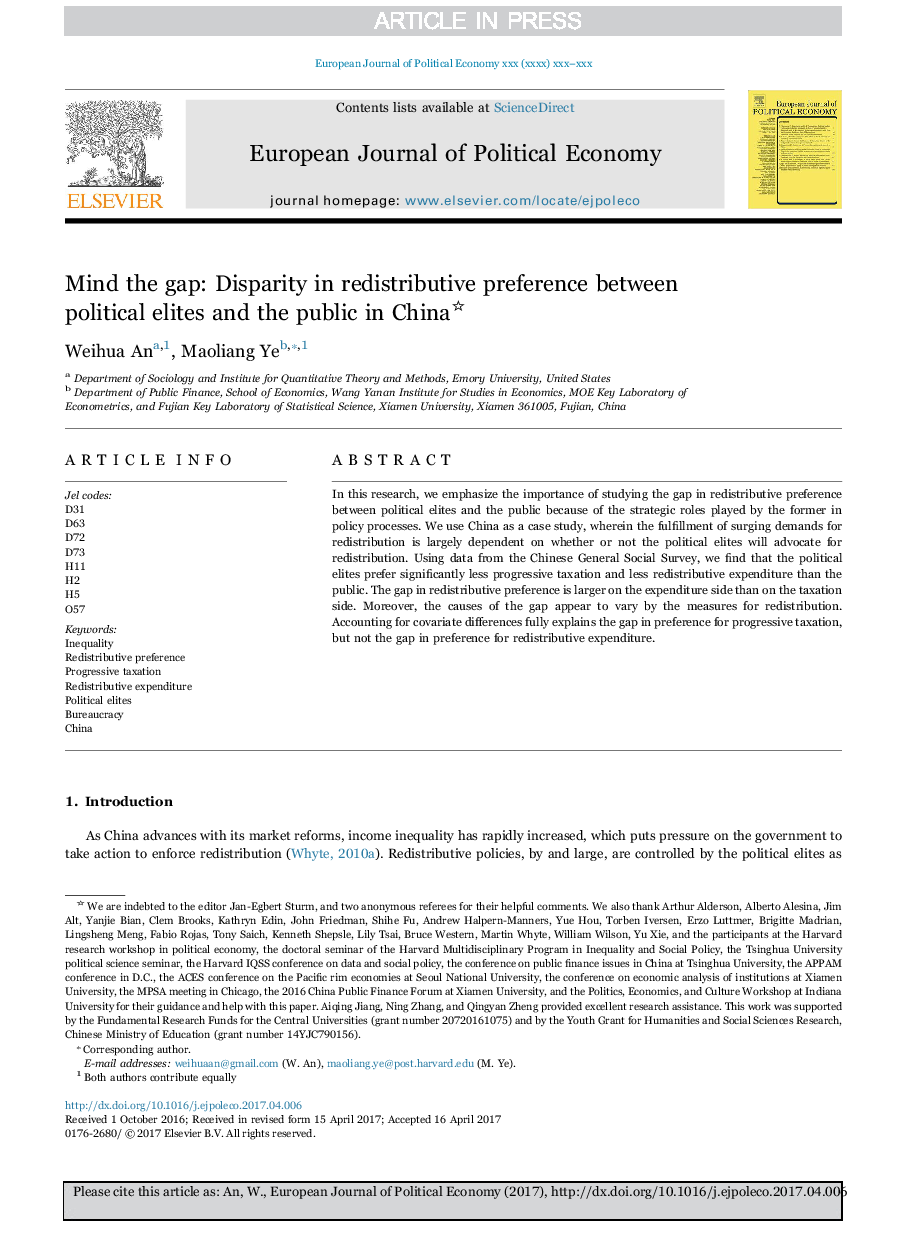ترجمه فارسی عنوان مقاله
درک شکاف: تناقض در ترجیحات توزیع میان نخبگان سیاسی و مردم در چین
عنوان انگلیسی
Mind the gap: Disparity in redistributive preference between political elites and the public in China
| کد مقاله | سال انتشار | تعداد صفحات مقاله انگلیسی |
|---|---|---|
| 112358 | 2017 | 17 صفحه PDF |
منبع

Publisher : Elsevier - Science Direct (الزویر - ساینس دایرکت)
Journal : European Journal of Political Economy, Volume 50, December 2017, Pages 75-91
ترجمه چکیده
در این تحقیق، ما بر اهمیت مطالعه شکاف ترجیحی توزیع مجدد میان نخبگان سیاسی و مردم به دلیل نقش های استراتژیک سابق در فرآیندهای سیاست تأکید می کنیم. ما از چین به عنوان مطالعه موردی استفاده می کنیم، در حالیکه تحقق خواسته های فزاینده ای برای توزیع مجدد تا حد زیادی وابسته به اینکه نخبگان سیاسی از توزیع مجدد حمایت خواهند کرد یا خیر نخواهند بود. با استفاده از داده های کلی عمومی اجتماعی چینی، می بینیم که نخبگان سیاسی ترجیح می دهند که به طور قابل ملاحظه ای مالیات های مترقی و کمتر هزینه های توزیع مجدد را نسبت به مردم ترجیح دهند. شکاف در ترجیحات توزیع مجدد در بخش هزینه بیشتر از سمت مالیات است. علاوه بر این، علل شکاف به نظر می رسد با اقدامات برای توزیع مجدد متفاوت است. حسابداری برای تفاوت متغیرها به طور کامل شکاف در اولویت مالیات های مترقی را توضیح می دهد، اما شکاف در اولویت هزینه های توزیع مجدد نیست.

